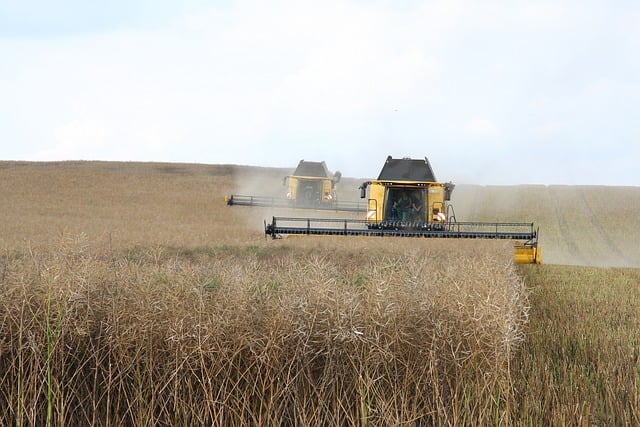The world of agriculture is rapidly transforming with the integration of artificial intelligence (AI). As sustainable farming practices become more essential, AI offers revolutionary solutions to help farmers optimize crop production, reduce waste, and minimize environmental impact. By using AI for precision farming, smart irrigation, pest detection, and sustainable soil management, agriculture can meet the demands of the future while preserving the earth’s resources. This post explores how AI is reshaping sustainable agriculture practices and highlights various applications that farmers can leverage to increase efficiency and eco-friendliness.
AI for Precision Farming
Precision farming is one of the most significant innovations in modern agriculture. AI technology helps farmers analyze data collected from satellites, drones, and sensors to make informed decisions about planting, watering, and harvesting. AI-driven precision farming can identify the optimal times to plant crops, the best locations for growth, and the precise amount of water or fertilizer needed.
By using AI algorithms, farmers can also assess soil conditions, forecast weather patterns, and predict the likelihood of pests or diseases. This data-driven approach minimizes resource usage and enhances crop yields while reducing environmental harm. Additionally, AI helps reduce the guesswork in farming, allowing farmers to apply inputs such as fertilizers and pesticides only when necessary. This practice not only saves money but also supports sustainable agriculture by preventing overuse of chemicals.
In the future, precision farming will become even more essential as climate change continues to affect agricultural productivity. AI will enable farmers to adapt their practices based on real-time data, ensuring that their farms remain productive and sustainable for years to come.
Smart Irrigation Systems with AI
Water conservation is a critical concern in agriculture, especially in regions affected by drought or water shortages. AI-powered smart irrigation systems help farmers manage water use more efficiently by analyzing soil moisture levels, weather forecasts, and crop requirements. These systems automatically adjust irrigation schedules to provide the exact amount of water crops need, reducing waste and ensuring optimal growth conditions.
Smart irrigation systems not only save water but also help maintain soil health. By delivering water more efficiently, they prevent soil erosion and nutrient runoff, which can harm the environment and reduce crop productivity. In addition, AI can help farmers identify areas of their fields that require more or less water, allowing them to optimize irrigation across large plots of land.
By implementing AI in irrigation, farmers can significantly lower their water consumption while maintaining or even increasing crop yields. This sustainable approach not only benefits the environment but also helps reduce costs associated with water use.
AI in Crop Yield Prediction
Crop yield prediction is a vital aspect of agricultural planning, and AI is making this process more accurate and reliable. Traditional methods of predicting yields often involve manual assessments or reliance on historical data, which can be inaccurate or outdated. AI, however, uses real-time data from various sources—such as satellite imagery, soil sensors, and weather reports—to predict crop yields with high precision.
AI-driven models can take into account numerous variables, such as soil composition, rainfall patterns, and temperature fluctuations, to generate highly accurate yield forecasts. This allows farmers to plan their harvests more effectively, ensuring that they have the resources in place to meet demand. In addition, AI helps farmers identify potential problems, such as diseases or nutrient deficiencies, early in the growing cycle, allowing them to take corrective action before yields are affected.
Accurate crop yield prediction is essential for minimizing waste and maximizing resource efficiency, both of which are key components of sustainable agriculture. By using AI to make better decisions, farmers can improve their profitability while also protecting the environment.
AI for Sustainable Soil Management
Healthy soil is the foundation of sustainable agriculture, and AI is playing a critical role in improving soil management practices. AI tools can analyze soil samples, monitor changes in soil composition, and recommend treatments to maintain or enhance soil health. These systems can detect nutrient deficiencies, identify areas prone to erosion, and recommend sustainable farming techniques, such as crop rotation or cover cropping.
By using AI to monitor soil health, farmers can avoid the overuse of synthetic fertilizers and chemicals, which can degrade soil quality over time. AI-powered soil management also helps farmers adopt regenerative practices, such as adding organic matter to the soil to improve its structure and water retention capabilities. This, in turn, supports long-term soil health and increases the resilience of agricultural ecosystems.
In addition, AI can help farmers track the impact of different agricultural practices on soil health, allowing them to fine-tune their operations for greater sustainability. Over time, this leads to more productive and environmentally friendly farming methods.
AI-Powered Pest and Disease Detection
Pest and disease control are ongoing challenges in agriculture, and they can have a devastating impact on crop yields. Traditional methods of managing pests often rely on the widespread use of chemical pesticides, which can harm the environment and contribute to the development of resistant pests. AI offers a more sustainable alternative by enabling early detection of pest infestations and disease outbreaks.
AI-powered systems can analyze images of crops taken by drones or cameras and detect early signs of pest damage or disease. By identifying these issues before they become widespread, farmers can take targeted action, such as applying biological pest control methods or using precise amounts of pesticides only where needed. This approach reduces the reliance on harmful chemicals and promotes a more sustainable way of managing crop health.
In addition to early detection, AI can also help farmers track the spread of pests and diseases over time, allowing them to implement preventative measures in future growing seasons. This proactive approach is essential for maintaining healthy crops and supporting long-term agricultural sustainability.
AI in Agricultural Water Management
Efficient water management is a cornerstone of sustainable agriculture, and AI plays a key role in optimizing water use across farms. AI systems can analyze vast amounts of data from sensors placed in the field to monitor soil moisture, weather conditions, and crop water needs. Based on this information, AI can provide recommendations on the most efficient watering schedules and methods, helping farmers conserve water while ensuring optimal crop growth.
By using AI to manage water resources, farmers can reduce their overall water usage, lower costs, and minimize the environmental impact of over-irrigation. This is particularly important in regions that experience frequent droughts or have limited access to freshwater resources.
In addition, AI can help farmers design more efficient irrigation systems by identifying areas of inefficiency or waste within existing systems. This allows for continuous improvement in water management practices, ensuring that farms remain sustainable and productive in the long term.
AI for Climate-Resilient Farming
Climate change poses a significant threat to agriculture, with rising temperatures, changing precipitation patterns, and extreme weather events disrupting farming practices worldwide. AI is helping farmers adapt to these challenges by providing real-time data on climate conditions and offering predictive insights that enable farmers to adjust their operations accordingly.
For example, AI can analyze historical weather data and predict the likelihood of future weather events, such as droughts or floods. Farmers can use this information to plan their planting schedules, choose climate-resistant crops, or invest in infrastructure to protect their farms from extreme weather. AI can also help farmers manage risks by providing early warnings of climate-related threats, allowing them to take preventive measures to minimize damage.
By helping farmers build resilience to climate change, AI supports the long-term sustainability of agricultural systems. As climate change continues to affect global food production, AI will play an increasingly important role in ensuring that farms can adapt and thrive in a changing environment.
Conclusion
AI is transforming agriculture by offering innovative solutions that support sustainability and efficiency. From precision farming to smart irrigation and climate-resilient practices, AI enables farmers to make data-driven decisions that optimize resource use, reduce environmental impact, and increase crop productivity. As the agricultural industry continues to face challenges related to climate change and resource scarcity, AI will be a critical tool for ensuring that farms remain productive and sustainable for future generations. By embracing AI-driven technologies, farmers can meet the demands of the present while safeguarding the environment for the future.






